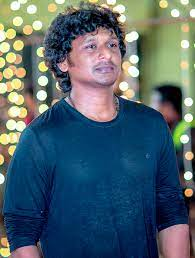I can now relate with most prisoners. No, not with the torture, not with the isolation. But with the food. The food might be okay at first glance. But it is the repetition that is the problem. Every breakfast is the same. Every lunch and dinner is the same. It would be okay for the first few days. But after that? It's just hell.
Similar is the case with Indian Cinema. This post is targeted mostly at Indian Cinema. But the problems discussed here are also applicable to the cinemas of other countries.
So, what is the problem? Templates. Cliches. Tropes. Indian filmmakers tend to heavily rely on these. Does this give us a fundamentally good movie, with good acting and a good screenplay? NO.
The cliches, tropes, and stereotypes just make a movie bad. No, terrible. Why would I, as a part of the audience, want to watch a similar plot point that has been horrendously ripped off another movie? And here begins the chain of events: This plot point is used in another movie, and another, and another...
It just shows the incapacity of the filmmakers to experiment and brings to light the money-driven mindset of production houses. No, they don't want to experiment with something new. So, they recycle plot elements and scenes from other popular movies that have used these. Why? Because they know that they sell.
One such template is the one in Kollywood which focuses on agriculture. I really cannot keep count of the number of movies that have agriculture as one of their underlying themes. Kaththi, Laabam, and Bhoomi are just some of them. Kaththi was a phenomenal movie (despite the criticisms against A.R Muragadoss for having stolen the script) and the movies that followed it adopted similar themes and elements.
Another major concern I have is with stereotypes. This stereotype problem was addressed by Suzhal (a review of it is coming up). So, yes, we all assume an arrogant North Indian entrepreneur is the antagonist. Or, it could be an Indian Muslim. Oh, and I seriously do not get the industry's obsession with lighter-skinned people. Why is the protagonist light-skinned while his ally is dark? Why hasn't there ever been a dark-skinned love interest?
Another problem associated with such templates is the writing itself. Such template-heavy films rely so much on the plot that there is minimum character progression. The protagonist is bland and without any sort of motivation. Worse is the antagonist, who is always so cliched and money-minded half of the time. Added to the pain of watching a recycled-movie is the female lead. She doesn't have a story of her own, but instead, her only role is to support the protagonist. Or, in many cases, the female lead gets abducted, and then there is the protagonist's motivation to go after her. So freaking cliched.
Take two films that were released on the same day: Beast, starring "Thalapathy" Vijay, and KGF: Chapter 2 starring Yash. Beast's reviews were highly negative, with its IMDB score being 5.2 at the time that I am writing this. It collected 236 crores at the box office. Then, take KGF. Its IMDB score is a whopping 8.5. And its box office collection? 1266 crores!
I think it's high time that production houses and even the actors signing up for roles realize that it's not about fan service anymore. Most of the audience wants a structurally good movie, not a movie whose flow is clogged down by illogical action sequences and pretty-but-useless heroines. The only reason KGF triumphed was the good storyline, and the success of its predecessor, which also was a splendid flick.
That is why the Indian industry is in need of pure talent. Talent that is willing to experiment. Talent that realizes that overused plotlines simply do not work anymore. Examples of this are SS Rajamouli and Lokesh Kanagaraj, directors who have directed mega-hits. Sure, there were your usual cliches in each of their films. But you can never make something completely original. The reason their films succeeded was that they burst out of the bubble of predictable tropes and messy storytelling.






...the blog route to box office- lovely initiative, Dharshun 🌱
ReplyDeleteKeep exploring and share your thoughts.. Great article to read..
ReplyDelete